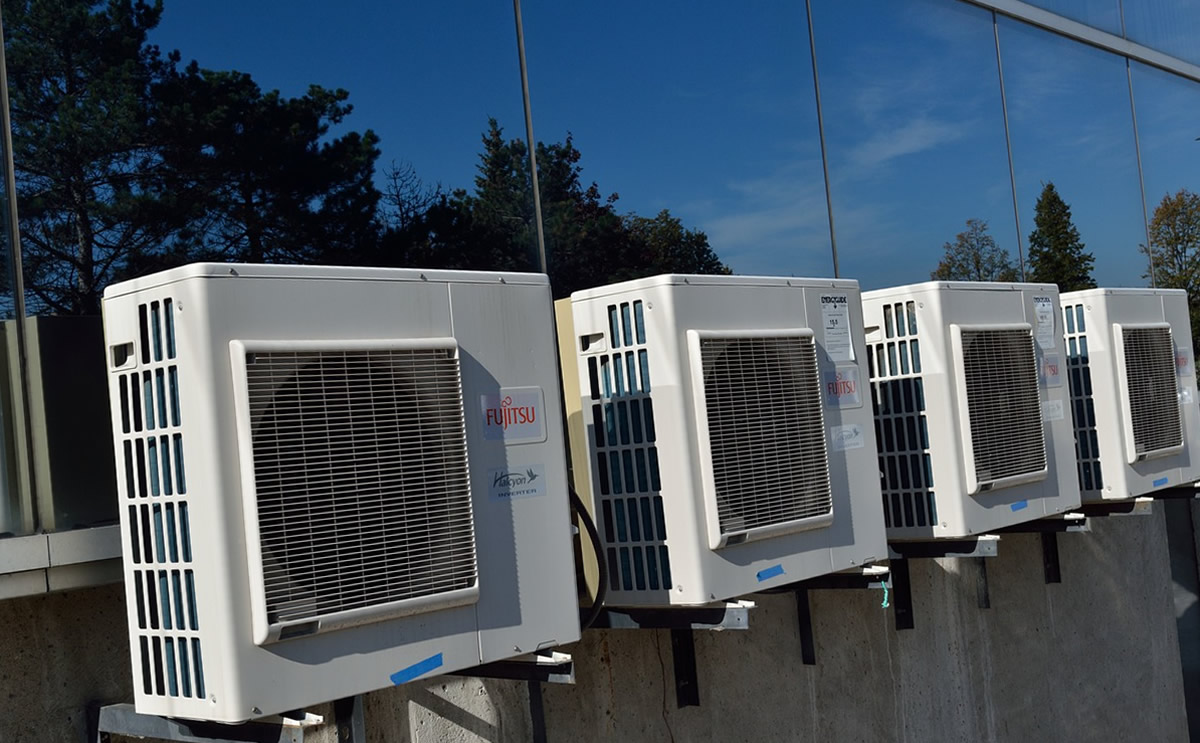
Condenser in Air Conditioning Unit: Understanding Its Function and Importance
Introduction
When it comes to keeping our homes cool and comfortable during hot summer months, air conditioning units play a vital role. Among the essential components of an air conditioner is the condenser. Understanding the role of the condenser and its maintenance is crucial for ensuring the longevity and optimal performance of the cooling system.
What is a Condenser in an Air Conditioning Unit?
The condenser is a crucial part of an air conditioning system responsible for releasing heat collected from indoor air to the outside environment. It is located in the outdoor unit and works in conjunction with the evaporator, which absorbs heat from indoors. The condenser plays a vital role in the refrigeration cycle, making it possible for the air conditioner to cool your living spaces effectively.
How Does a Condenser Work?
The operation of the condenser involves a series of processes within the refrigeration cycle. Let’s take a closer look at how it works step-by-step:
1. Refrigerant Cycle
The refrigerant, a chemical substance responsible for absorbing and releasing heat, circulates through the entire air conditioning system. The cycle begins at the evaporator, where the refrigerant absorbs heat from indoor air, turning into a low-pressure, low-temperature gas.
2. Compression
The low-pressure gas is then compressed by the condenser compressor, increasing both its pressure and temperature. This conversion allows the refrigerant to transition into a high-pressure, high-temperature gas.
3. Condensation
The hot refrigerant gas flows through the condenser coils, where it releases heat to the external environment. As a result, the refrigerant condenses into a high-pressure liquid.
4. Heat Exchange
The high-pressure liquid refrigerant is now ready to move back into the evaporator, where the process begins anew. As the refrigerant absorbs heat indoors, it turns back into a low-pressure gas, completing the refrigeration cycle.
Types of Condensers
Air conditioning systems employ various types of condensers, each with its own advantages and applications:
1. Air-Cooled Condenser
The most common type, an air-cooled condenser, uses ambient air to dissipate heat. The condenser coils have fins to increase surface area, enhancing heat exchange. This type of condenser is cost-effective and easy to install.
2. Water-Cooled Condenser
Water-cooled condensers use water to remove heat from the refrigerant. They are more efficient than air-cooled condensers but require a continuous water supply, making them suitable for specific applications.
3. Evaporative Condenser
Evaporative condensers combine the principles of air and water-cooled condensers. They use a spray of water to cool the condenser coils, making them efficient and well-suited for high-temperature environments.
Components of a Condenser
A condenser consists of several key components that work together to facilitate the heat transfer process:
1. Condenser Coils
These coils are typically made of copper or aluminum and are responsible for housing the refrigerant as it undergoes the condensation process.
2. Condenser Fan
The condenser fan helps in drawing air over the condenser coils, facilitating heat exchange and promoting efficient cooling.
3. Condenser Compressor
The compressor plays a crucial role in the refrigeration cycle, compressing the refrigerant to enable heat release during the condensation phase.
4. Condenser Tubes
These tubes allow the refrigerant to flow through the condenser, facilitating the heat exchange process.
Importance of a Well-Maintained Condenser
Maintaining the condenser is vital for several reasons:
1. Energy Efficiency
A well-maintained condenser operates efficiently, reducing energy consumption and lowering utility bills.
2. Cooling Performance
An optimally functioning condenser ensures that the air conditioner cools your living spaces effectively.
3. System Lifespan
Regular maintenance prolongs the lifespan of the entire air conditioning system, saving you money on premature replacements.
Common Condenser Issues and Troubleshooting
Some common condenser problems include:
1. Airflow Problems
Obstructions or dirt blocking the condenser’s airflow can hinder its performance. Regular cleaning can prevent such issues.
2. Refrigerant Leaks
Leaking refrigerant not only affects cooling but also harms the environment. Professional repair is necessary to fix leaks.
3. Fan Malfunction
A faulty condenser fan can lead to inadequate heat exchange. Technicians can diagnose and repair fan issues.
4. Compressor Issues
Compressor problems can be complex and require professional attention for proper resolution.
DIY Condenser Maintenance Tips
While some maintenance tasks should be left to professionals, homeowners can perform the following DIY maintenance:
1. Regular Cleaning
Keep the condenser coils and fan clean from debris and dust for optimal airflow.
2. Checking for Leaks
Inspect the condenser for any signs of refrigerant leaks and address them promptly.
3. Lubricating Moving Parts
Proper lubrication ensures that the condenser fan operates smoothly.
4. Ensuring Proper Airflow
Clear the area around the condenser to ensure sufficient airflow and efficient heat exchange.
Professional Condenser Maintenance and Repair
Regular professional maintenance is essential to keep the condenser in top condition:
1. Scheduled Tune-Ups
Annual or bi-annual tune-ups by a qualified technician help identify and address potential issues early on.
2. Hiring a Qualified Technician
For complex repairs or issues, it’s best to rely on a qualified HVAC technician with experience in handling condensers.
3. Repair vs. Replacement
Professionals can assess whether a repair or replacement is the most cost-effective solution for a faulty condenser.
Upgrading to a High-Efficiency Condenser
Consider upgrading to a high-efficiency condenser to enjoy better cooling performance and energy savings.
Conclusion
In conclusion, the condenser plays a crucial role in the cooling process of an air conditioning unit. Proper maintenance and timely repairs are essential to ensure the system’s optimal performance and longevity. By understanding how the condenser works and implementing regular maintenance, homeowners can enjoy efficient and effective cooling throughout the hot summer months.





0 comments
Write a comment